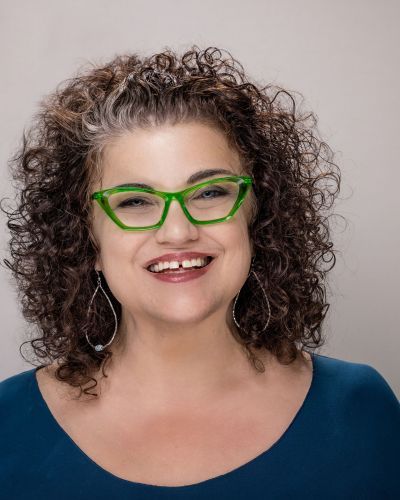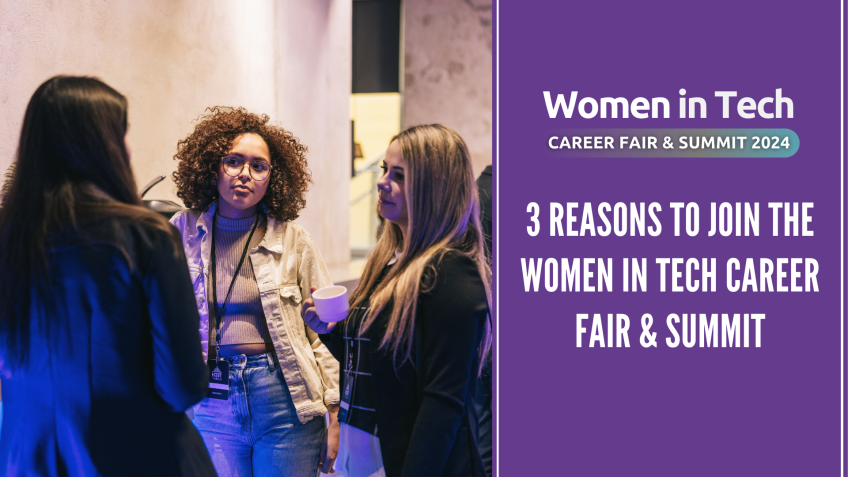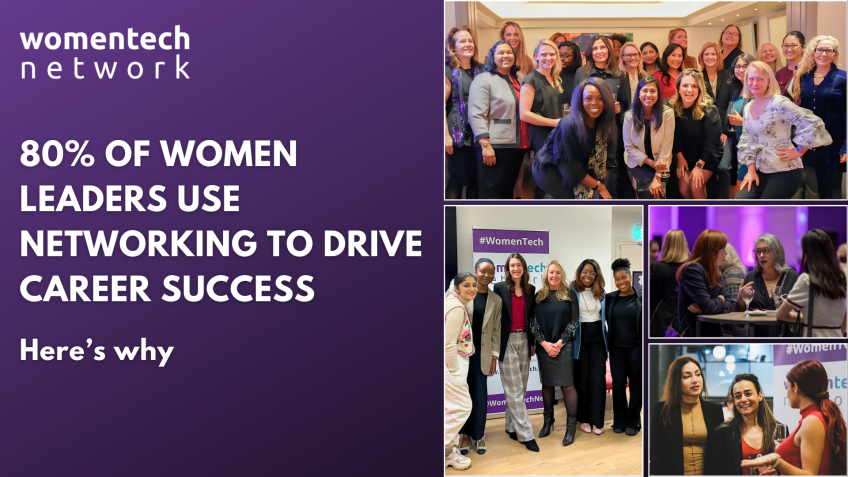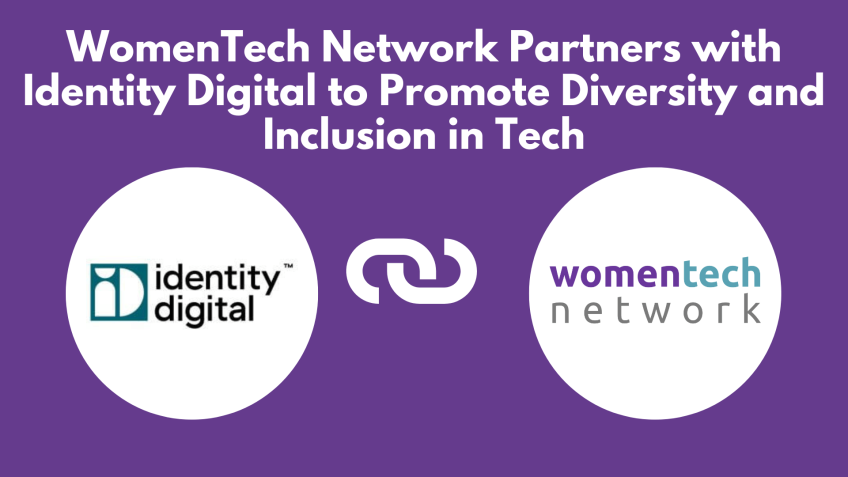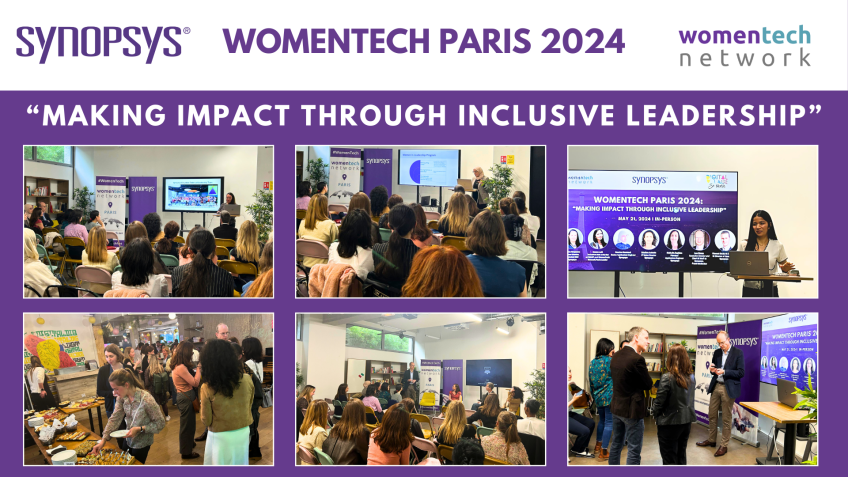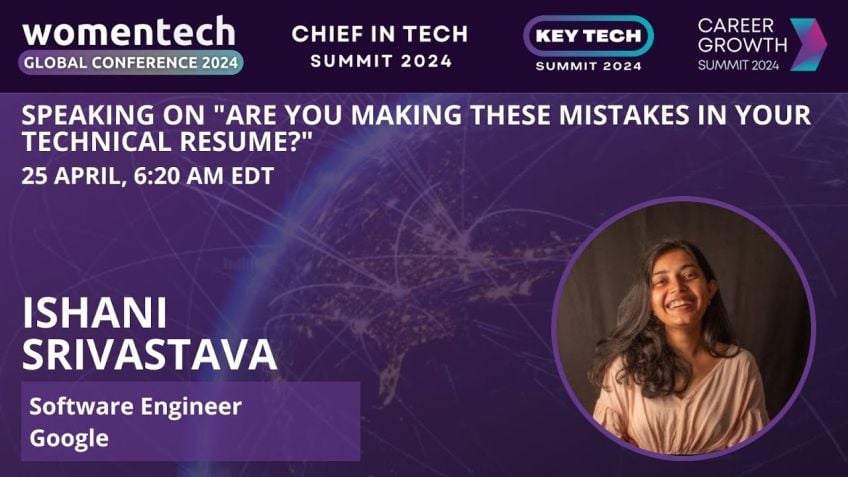From the Outside In: Being Real to Build Culture
Jenny Strauss
Sr. Director, Employee Experience and DE&ICreating a Culture that Counts: An Authentic Approach to Workplace Inclusion and Diversity
What's something about you that impacts how you show up to work every day? That's the question I invite you to ponder as we delve into the intricate correlation between personal experiences and a company's culture. This post hopes to offer inspiration and a roadmap to creating inclusive and diverse environments that strengthen our personal and professional lives.
The Road to Being the Senior Director of Employee Experience and Diversity Equity at Demandbase
Before we dig in, let me introduce myself. My name is Jenny Strauss, Senior Director of Employee Experience and Diversity Equity at Demandbase – a tech B2B SaaS company. My journey here has been circuitous and marked with its fair share of speed bumps and potholes. Like many, I began working because I had to. There was no linear path charted out, only survival and the vague aspiration towards find happiness and stability. I've worked various roles from a nanny and a housekeeper to a fast-food worker and a phone operator.
It was a somewhat winding road, peppered with unceremonious layoffs and steep pay cuts. Nonetheless, the diverse skill set and experiences have undoubtedly influenced my approach towards work and formed core components of who I am today. The myriad of roles taught me the importance of culture, communication, empathy, and authenticity in not only the workplace but our lives as a whole.
Unlocking the Power of Vulnerability to Foster a Positive Company Culture
Sharing our most authentic selves fosters an environment of empathy and connection, enhancing workplace cohesion and ultimately contributing to company success. The cultivation of authenticity and transparency, on the part of leaders and employees alike, is central to our endeavors here at Demandbase. Here are some ways we implement these values in our workspace:
Storytelling and Communication: We publish a weekly newsletter that is entirely about people, not business. It's a spotlight for our employees, a platform for contests and celebrations, and ultimately an incredible tool for building camaraderie and culture.
Gather Round: An innovative tool we use for facilitating curated conversations. It encourages employees to open up and connect on a deeper level amid our 24/7 culture.
Employee Resource Groups: They offer safe spaces for employees to relate and connect. Moreover, they serve as channels for valuable feedback to the company and also aid in the personal and professional development of the employees leading these groups.
Shared Experiences: From an executive panel sharing personal mental health journeys to employees sharing their own life experiences during relevant events provides space for vulnerability and connection.
Peer Recognition: We have a dedicated channel where employees can appreciate and recognise one another's work. This fosters a culture of positivity and inclusivity.
Individual Development: From development plans to an internal mentorship program, we strive to help each member of our team grow and succeed.
Embracing Feedback: Last but hardly least, we value and prioritise feedback. Asking for feedback, acknowledging it, and acting upon it builds trust within an organisation.
The value of authenticity and transparency cannot be overstated in fostering a healthy, inclusive, and vibrant workplace culture. Being "real" goes beyond just a company value at Demandbase. It's a way of life. Every day, we bring our authentic selves to work, and in doing so, we make work inherently worth doing.
Engaging Questions
To conclude, consider how could you apply some of these strategies in your workplace and what could you do today to make your company's culture more authentic and inclusive? Let's encourage the sharing of stories, promote an environment of authenticity, and celebrate diversity.
Video Transcription
OK, we'll wait a little couple seconds for people to join. Welcome. Oops. Well, hi everybody while we're waiting for people to join. I invite you to share in the chat. What's something about you that impacts the way that you show up to work every day?So I welcome you to share your thoughts on the chat as much or as little as you'd like to share. And I'm very happy to be here with all of you. Um I will get started. My name is Jenny Strauss and I'm the senior director of Employee Experience and diversity equity and inclusion at demand base, which is a tech company, A B to B SAS company. Um I really wanna thank the women tech organization for inviting me to speak and I'm thrilled to be with all of you. Uh And so I am going to get started so feel free again to put in answer to the chat. I know it's a little nerve wracking to start out with chat, but I'd love to hear from you and I will be looking at that. Um And so let me just talk to you about where I came from because honestly, the fact that I'm the senior director of employee experience in de and I is not a given I had a career trajectory, but I call it that in retrospect now I'm in my late fifties.
The truth is that I started working because I needed to and I had no idea what I was going to do and I think this could be true for some or all of you. I've been a nanny. I've been a housekeeper. I've been a fast food worker. I worked at Burger King. I worked, uh, delivering pizza for Domino's. I've been a phone operator before. That was all automated. I've been a temp more than once an office manager which actually allowed me in my job to travel around the US and later I traveled around the world with work. So kind of amazing. I've been an admin more than once, a marketing specialist. I started attempting at Levi's Strauss and company. I'm not related in the nineties and worked my way up into marketing, but because I couldn't get hired, I also went to grad school while I was there. Um, I moved into advertising and the.com excitement that was happening. And then I actually got laid off while I was pregnant with no severance pay. And that was a hard moment and I know it's a moment many people are going through in their own ways right now. So I just want to share a little bit about that again, I didn't really have a trajectory. I sort of worked, found jobs, found my way in, I ended up taking a huge pay cut when I went back to work when my oldest was a baby.
And I started over again in a small solar company. But in every job I've had, I've cared about culture and communications and I haven't been afraid to speak my mind. I haven't always understood the rules of engagement. So maybe that gave me a little more bravery or hubris. Um I ended up working on internal communications for a global solar company. And then I, that led me into employee engagement and experience and communications. And then I've always also had a passion for de and I, so that's part of the story. And I bet you there are many of you who equally interesting and circuitous career paths who I am now. I'm a white cisgendered woman. And I think it's important to say that and, and state who I am. I'm a member of the queer community. I have two amazing Children and a bonus kid. Uh One of my Children is a transgender woman. And um I bring all that with me to work and I share about myself because I think it's important. But where did I start? I was uh I grew up poor and lower middle class, divorced parents. My parents were hippies. I had um a lot of difficult things happen. I, I was uh I grew up around amazing set of people in different states. Um I also we experienced domestic violence in our house. We had to be in hiding from my mother's boyfriend for years. I was always afraid of him finding us. And that was super scary and I really felt myself and was an outsider.
I didn't understand how to interact with the world. I felt like I have not. Um And I sort of eked by and so by the time I was in high school, I was, I was having a very difficult time at home and at school I didn't fit in. I was made fun of a lot. Um I hung with kind of a bad crowd and I ended up actually getting expelled when I was 15, so I didn't finish high school. Um I did go on to get a graduate degree. Actually, I went to college and graduate school in art and I've worked for many, many years. So I've taken that experience and made it part of who I am and how I show up at work. And why did I share all that with you? Because it is the secret sauce of our culture when we all interact with one another in very authentic ways. And that means leaders sharing themselves, that means people as much as they feel safe to sharing themselves. It means telling our actual stories that we gain a sense of empathy and connection with others. And for me, that's what makes work worth doing. I need to work. But I want to work because I love connecting with people. And I recognize your humanity and, you know, I may not see your faces right now, but I know you're out there and I know you have compelling stories and that is the energy that I try to bring to everything I do and that I help our leadership team too.
So if you're thinking about your culture and your company, wherever you are in that journey or whatever level of, of person, you know, job you have, you have an opportunity to help people be more authentic and help leaders connect with others. And that makes us all wanna pull for each other, that makes us a more cohesive and successful company. I truly believe that. So I wanted to share that with you. Um And again, when I ask, you know, who do you bring to work every day? What do you bring? What experiences shape you? I'd just like you to consider that. And then I'll talk a little bit about what we do at demand base to bring our culture to life. Um One thing is we tell stories. So we find ways to actually make this real for people and in nonthreatening ways. Um I'm maybe a little more bold than some. You don't have to do it like that. But I, I you can share stories so we actually do this old fashioned thing, which is a weekly newsletter. I mean, it's very like 19 nineties. Right. But it's an awesome newsletter. That's not about business. It's about people and we use it to highlight our people, talk about things we're doing. We have contests and celebrations and this is extremely meaningful in a remote first world which our company is as well. So we're trying to find ways to connect.
Uh So it's a great way to build camaraderie and culture and people just love it. We hear lots of good things. Um So that's one way that we build connections across our culture that uh I don't see being done as much as I think it could be. Another thing we do is use this amazing tool called Gather Round. And the reason I bring it up is because we're all on Zoom all the time, right? Or Microsoft teams or different um software. But Gather Round is a way to connect with curated conversations that really feels different than what you might typically see. So these conversations will be like uh cards, you can virtual cards, you can flip where we're asking questions of people. Um having them get into small group breakouts or one on ones or come back to the main room, it looks different than a Zoom and they continue to add really great content. So for me, in my role, it would be hard to come up with all of this curated content and the right questions to ask. But with this tool, I'm able to do that. Um We do our newbie on boarding with it. We have DE I conversations, we have celebrations, team events. So it's really a wonderful way to create again, connections, get people opening up to each other. Um And when you can't be standing around the water cooler, you need something like this.
So I just um love it and we get incredible feedback about it. And then the other thing we do is help people find people um because that matters in life, feeling a sense of belonging and inclusion really helps one feel connected and committed to work. So I'm sure many of your companies have employee resource groups. It's something that we're really leaning into along with our DE I strategy and we've launched many in the last year and I just wanna say they, they incredible because not only does it give people a space to relate to one another that feels relatively safe, but it also helps us create events and education and celebration for all employees.
It's also a conduit for something I'll talk more about, which is feedback. So it's a way for us to hear our leaders to hear what's happening with employees in the company. What do they care about? What do we need to work on? Uh It's very powerful, we're proud of it. And then the other thing it does is support those leaders in their own development. So if somebody volunteers to be an er g leader, they are, they are stepping up to a big visible role and we're constantly working to make that a great experience for them because it's so important for our company and culture, you can see it on our website and we hear people talking about it being real is super impactful.
So I think that's the whole through line of this conversation, right? We do it in many different ways. I personally do it, our leaders do it. We encourage our employees to do it. And so some other examples of that, it's Mental Health Awareness Month right now, last year for Mental Health Awareness Month, we had an executive panel that talked about their own mental health journeys and I don't know about you, but this is not something that happened in my world certainly.
Um not when I started working, not for dozens of years and really things changed during COVID honestly where people had to get more real with each other. We were seeing our lives and it's uh it was a a terrible pandemic and this is one of the benefits of the experience. It brought people out to one another. So in this chat as an example, my boss who's a chief people officer talked about his journey in recovery as an alcoholic. I mean, that's an incredible thing to offer to employees in such a public way. And I can tell you that we heard so much positive feedback about that. So it's an example of a leader being vulnerable for the greater good and helping him feel more connected. It also means that people reach out to him when they have similar issues and need somebody to talk to. Of course, what I mentioned, the safe spaces for er GS for people who are in our employee resource groups can't be understated and it's something that we're still developing um sharing personal stories and profiles.
I showed that newsletter, you know, we might talk about what it's like to be a woman in tech uh for Women's History Month. We did that what it's like to be a woman in tech in India. We did a story, what it's like to be a person with autism. Um We, we have so many examples of people willing to share their vulnerable real stories, but we also have a lot of fun. It's not all, it's all heavy, you know, it's the humanity of our group. Um We also are really good at peer to peer recognition and celebration. So we have a slack channel where we have recognition, we have, you know, hundreds of messages a month, people recognizing each other and it makes a difference to feel appreciated. Uh And then I think it's also important to note that in the company, you know, we're all trying to help our company be successful and our company is trying to help us So we think about individual development because we know it matters to our people and um it's something we've heard in surveys and something we've worked on and we do a lot um to focus on this, whether it's individual development plans, whether it's this amazing um mentorship, talent place that we have internally, uh whether it's different leadership classes or coaching, we really work with people where they are to help them develop in a way that makes sense for them.
And then feedback. I just wanna touch on this because it seems very obvious, but feedback really matters. And we're known to be a pretty transparent culture. We're known to really want to understand where our employees are, what they're thinking about dealing with how they feel about the company and the way that we do it is um in part through large scale surveys. So we're gonna launch one in June again, our mid year culture and management survey. We do an employee engagement survey in the fall. Um We look at data by department leader and demographics and I'll add that we also do voluntary self ID. So this is where people can say whether they're part of the LGBT Q community. Um whether they um want to identify their race, whether they're multi racial, if they're a veteran, if they're a caregiver to parents or adults, things that you might not know that aren't obvious. And we want people to have the agency to identify themselves if they like. But it really helps us understand the data we get in surveys because then we can look at different groups to understand their experiences. Also, we're looking at external benchmarks all the time and we're empowering managers and leaders of the team level to go back and share with their teams. This is what I heard. This is what I think it means.
Can you help me understand this and let's think about what we're going to do. So, surveys are very impactful if they're reported on and if they're acted upon, we also do pulse surveys after every town hall, which is monthly after events and other ways that helped us tell, uh know what's on people's minds because there's different ways to get to the same information.
We lots of other formal and informal ways that I'm sure you all do too from one on ones with managers to team meetings um to kind of the water cooler talk that you see in Slack or on Zoom chat. So there's just lots of ways that we think about feedback and some formal ways that we gather it. And just to reiterate this point, it matters to ask, it matters, to say what you heard and then to take action, you don't have to take action on every single thing. It wouldn't be reasonable, wouldn't make sense. But picking a couple high impact items and then letting people know that you did, it really matters So, for instance, at demand base, we heard people were really struggling with work life balance, partly because we're sort of a 24 7 culture and that we have us India and the UK.
So we have all these different time zones. People are on their smartphones and pads and devices. And so we heard that people wanted to be off at the same time and when you're just taking your own vacation, it's hard to do that. So we implemented two week long shutdowns every year. And that has been wildly successful and wonderful. And that is a direct result of us asking for feedback and acting upon feedback. So that actually builds a culture of trust and that creates kind of a virtual virtuous circle with people. And it just really helps our culture and makes us a wonderful place to work. So I guess I just wanna leave you with the fact. Whoops, sorry that we are real. That's one of our values. These are our employees, some of our employees, we have a great culture and we really care about making it as, as real as possible. Um I'm hoping we have time for a couple of questions. So um and then feel free to reach out to me, find me on linkedin or here's my email and I'm going to look in the chat just to see or the Q and A. If you have any questions, please let me know, I'll just check these things. Ah, thank you. Um, I heard somebody say from our group being a new mom and having a supportive company really matters. So they're talking about what they bring, what they bring to work every day. And I completely relate to that as a mother. I can't leave that.
Uh, you know, that, that always matters and it's always top of mind for me. It's who I am. Um, are there any other questions or comments you'd like to make anything I can clarify? I think our time we have a couple of minutes left. So I'll just sit here uh feel free to stay and ask a couple questions. Um I hope this was useful to you and I really appreciate you being here. You're very welcome. Thank you. People who are commenting. How do you make your newsletter real? A lot of times they can seem performative. Oh, uh I don't, I haven't experienced that. So let me see if I can figure out how to answer. We go out and Leah, who's our newsletter editor um who's amazing goes out and asks for stories, seeks um does interviews with people. So it might be that we have some sort of one of our celebration months coming up and really people are the thing. They, they are all year round. We get that, but we might highlight something during that month, like Women's History Month or Black History Month and go out and talk to employees who are willing to tell their story and then we do things like new baby pictures or celebrations.
So it feels pretty authentic. I don't think it feels performative. I haven't heard that. Um and it's a lot of work but the payoff is great. You're so welcome. It's a good question. All right. Well, thank you all so much. Appreciate you being here. I think we are done. Christina be John. Bye bye.

